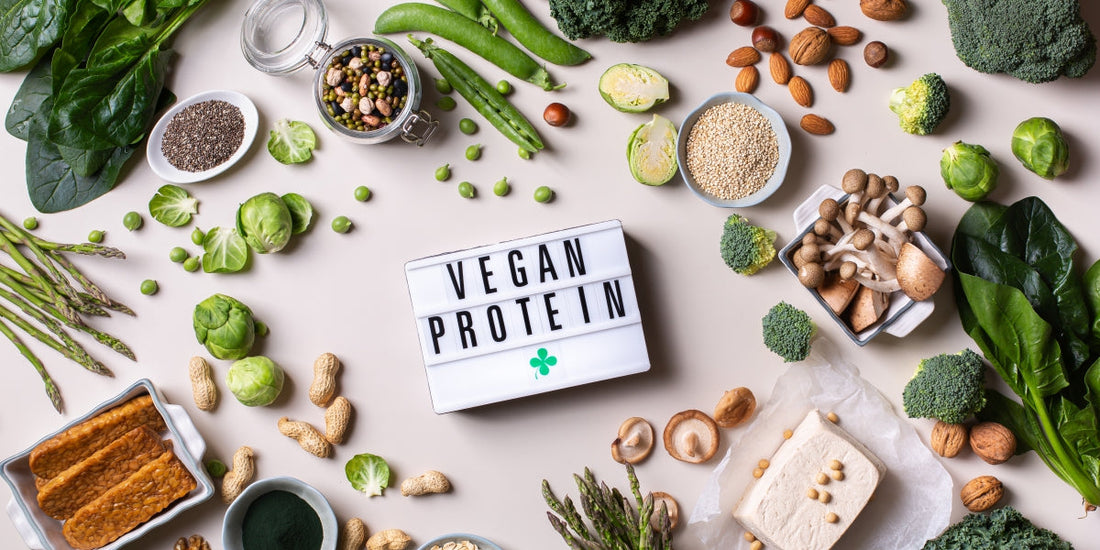
How Plant Protein Can Benefit Women - The Truth About This Essential Nutrient
byProteins are an essential nutrient that the body needs in order to function properly. They are the building blocks of bones, muscles, skin, and blood.
There are many different types of protein, but the two main types are animal protein and plant protein. Meat, poultry, fish, and dairy items all contain animal protein. Plant protein is found in legumes, nuts, seeds, and grains.
So, what are the benefits of plant protein for women? Read on to find out!
What is protein and why do we need it?
A macronutrient called protein is made up of amino acids. It plays a key role in building muscle, bone health, maintaining healthy hair, eyes and skin, and providing energy for the body. Proteins are made up of different types of amino acids, some of which are essential, meaning the body can’t produce them, and must be consumed from dietary sources. Women need protein to stay healthy and strong, and should aim to get about 10 percent of their daily calories from protein sources.
The benefits of plant-based protein for women
Plant-based proteins are an excellent source of essential nutrients, vitamins and minerals. They are low in saturated fat and can provide the same amount of protein as animal proteins. Plant-based proteins have the added benefit of being easily digested and can provide numerous other health benefits. Plant proteins contain dietary fiber, which helps to regulate the digestive system and keep cholesterol levels in check. They are also rich in omega 3 fatty acids, which can help reduce inflammation in the body. Plant proteins are also great for keeping hormones in balance, as they are rich in phytochemicals, which may help regulate hormones and keep moods in check. Lastly, plant proteins have been found to have a positive effect on heart health, as they can help reduce inflammation and lower cholesterol levels.
The best sources of plant protein
Some of the best sources of plant protein include nuts, seeds, beans, lentils, quinoa, tofu, and tempeh. Nuts and seeds are a good source of essential fatty acids and provide protein, fiber, and healthy fats. Beans, lentils, and legumes are great sources of protein, fiber, and micronutrients such as vitamins, minerals, and antioxidants. Quinoa is another excellent source of complete protein, containing all nine essential amino acids. Tofu and tempeh are great sources of protein for those who follow a vegan or vegetarian diet.
How to increase your intake of plant protein
There are many ways to get more plant protein into your diet. Start by replacing animal proteins with plant proteins at meals. Add beans, lentils, nuts, and seeds to salads and soups. Use quinoa, couscous, or brown rice in place of white rice. Snack on trail mix or nut butter for a nutrient-dense and protein-rich snack. Try tofu or seitan in place of animal proteins in your favorite dishes.
The bottom line
A healthy diet should contain adequate amounts of protein, which is a necessary macronutrient. Women need protein to stay healthy and strong, and should aim to get 10 percent of their daily calories from protein sources. Plant proteins are a great source of essential nutrients, vitamins and minerals and can provide numerous health benefits. Nuts and seeds, beans, lentils, quinoa, tofu, and tempeh are all great sources of plant protein. Incorporating more plant proteins into one’s diet can be easy and delicious. Eating a balanced diet with the right amount of plant protein can help keep the body healthy and strong.
FAQs:-
Q1. Why is plant protein beneficial for women?
Ans. Plant protein is a rich source of essential nutrients, fiber, and healthy fats. It supports hormone balance, promotes heart health, and aids in digestion, making it an excellent choice for women’s overall well-being.
Q2. Can plant protein provide all essential amino acids for women?
Ans. While most plant proteins are not complete proteins, combining sources like beans, lentils, quinoa, and seeds can ensure women get all nine essential amino acids. Quinoa and soy products like tofu are complete plant protein options.
Q3. Is plant protein suitable for muscle building in women?
Ans. Yes, plant protein supports muscle growth and recovery. Combining different plant-based protein sources can help women meet their protein needs, especially when paired with strength training exercises.
Q4. How can plant protein support hormonal health in women?
Ans. Plant proteins contain phytonutrients and antioxidants that may help regulate hormone levels. Additionally, fiber from plant protein sources supports gut health, which plays a role in hormonal balance.
Q5. Can plant protein help with weight management?
Ans. Yes, plant proteins are often low in fat and high in fiber, promoting satiety and reducing overeating. Women aiming for weight management can benefit from incorporating more plant proteins into their meals.








